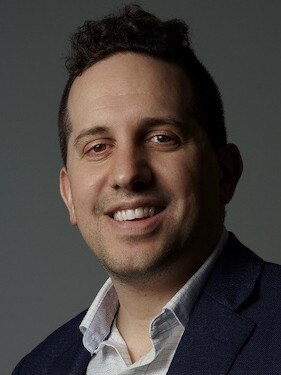New bookkeeping platform Thriday says AI can take pain out of taxes and accounts
Artificial intelligence can deal with accounting and taxation ‘better than a human could ever do’ says the co-founder of a new fintech.

Stockhead
Don't miss out on the headlines from Stockhead. Followed categories will be added to My News.
Artificial intelligence can deal with accounting and taxation “better than a human could ever do” says the co-founder of a new fintech.
One of the (human) minds behind new platform Thriday, Michael Nuciforo, says AI is set to be a boom for small businesses.
And there are plenty of them.
Recent data from the Australian Bureau of Statistics (ABS) shows that 98 per cent of all Australian businesses are classified as “small”.
The ABS defines a small business as one with less than 20 employees, while over at the Australian Taxation Office (ATO) they’re defining a small business as any enterprise turning over $10 million or less.
The latest figures show that the vast majority (93 per cent) of these businesses have a turnover of less than $2 million.
Although they operate in different fields, one thing all of them have in common is the need to keep accurate accounting records or bookkeeping.
For the latest tech news, sign up here for free Stockhead daily newsletters
According to a recent study however, managing financial affairs is the most disliked activity in running a small business, costing owners more than 42 days a year, or six hours a week.
In addition, owners spend an average of $1813 on one or more accountants each year, and those that also use a bookkeeper spend more than $4350.
Artificial intelligence (AI) could be about to change that for many firms.
Early movers are starting to emerge, including Thriday, a new, AI-powered fintech app billed as the “next-generation” financial management platform built specifically for SMEs (small-to-medium enterprises)”.
The platform uses artificial intelligence (AI) to automate banking, accounting, and tax to help businesses eliminate time taken by financial admin.
Thriday says that during the first three months of launch, users reported a 60 per cent drop in the time they spent on tasks such as paying bills, reconciling transactions and chasing unpaid invoices.
Nuciforo told Stockhead the ways AI could be applied to accounting were unbelievably powerful.
“We can actually do better number crunching, and better recording using AI than a human could ever do.”
Thriday’s AI technology allows the platform to perform bookkeeping and tax accounting for pretty much all types of small businesses including hairdressers, trainees, plumbers and even tech start-ups – all in one platform.
“For a human, it would have to work for hundreds of years to get to that level of knowledge,” said Nuciforo.
“So AI is going to be huge for accounting, and I firmly believe AI will do all your accounting and taxes in the future.”
MORE FROM STOCKHEAD: Archer’s chip a quantum computing breakthrough| Dubber on track for record revenue | ASX stocks cashing in on AI boom
Automating many things, including tax
Nuciforo said small businesses might not eliminate accountants altogether, but could use programs like Thriday to streamline accounting processes.
“The analogy I would give is if you want to get fit, you might decide to get a personal trainer,” he said.
“But you probably only want to use that personal training once every few weeks, you’re not going to use it every time you go to the gym.
“That’s how I would use accountants, because all you’re looking for is guidance or more strategic things, like international expansion.”
It would be more cost effective to use an automated platform such as Thriday to perform menial tasks like categorising transactions and number crunching, he said.
Nuciforo explained that Thriday’s AI technology, called Luca (named after Luca Pacioli, who invented double entry accounting), had been trained to recognise and categorise transactions according to the vendor at which transaction took place.
But first, customers would have to take out a debit card and open a banking account with Thriday.

“Let’s say your bank statement says that you’ve got a purchase at Bunnings, a restaurant, and an Ampol fuel service station.
“That’s all just text, and unless you know exactly what the description is, you need a human to go and categorise them as a hardware expense, food expense, and a fuel expense.”
What Luca does is that it can recognise these transactions and sort them automatically into the correct categories.
“Luca gives a confidence level and says, OK based on a purchase of $80 at an Ampol, it’s 99 per cent likely to be a fuel expense.”
It then automatically categorises the transaction as such in the chart of accounts.
“And we know how fuel should be treated from a tax perspective, so we’ve got all that logic double entry accounting system being performed automatically too,” said Nuciforo.
The platform also has a direct integration with the ATO, so businesses can lodge their tax returns directly into the ATO system.
“From an accuracy perspective, we have tested it with real accountants, looking at our estimates versus what they would do manually,” said Nuciforo.
Visit Stockhead, where ASX small caps are big deals
A scalable model
Nuciforo believes that younger Australian small business owners – those between 25 and 40 years old – are used to doing a lot of the techy things themselves, including using websites, apps and smart automation tools.
“But when it comes to accounting, they’re still sitting on their computer and calling up an accountant to check the accounts,” he said.
Nuciforo says other software offerings on the market might not help, if they were designed as solutions for accountants, not for business owners.
Thriday has targeted a lot of its marketing efforts toward that 25-40 demographic, which it believes could provide a big opportunity.
The bookkeeping segment is lucrative.
Xero for example started from nothing in 2006 in New Zealand, and has become a $18 billion giant.
MYOB, an Australian start-up founded in the early 1980s, was delisted from the ASX in 2019 after being acquired by private equity firm KKR for $2.2 billion.
“We’re really excited, and I think the longer vision for Thriday is that this model of automation is very scalable,” said Nuciforo.
“So our goal is to launch the platform in other markets, and we would have to train our data on another country.
“But we wouldn’t have to worry about having huge amounts of resources or people to do that.”
ASX-listed players in this space
RECKON (ASX:RKN)
Reckon provides software solutions for accounting and bookkeeping professionals.
The company sold its Practice Management Accountant Group business last year, leaving it with two operating divisions targeting small businesses, accounting and bookkeeping firms and legal firms.
Reckon says it has more than 117,000 people using its cloud SME products, and over 400,000 employees get paid in Australia via Reckon products.
In addition, five of the world’s top legal firms use Reckon’s solutions.
IODM (ASX:IOD)
Founded in 2008, IODM owns software to automate and streamline the accounts-receivable process, data analytics and communication for businesses large and small.
The company’s subscription model business serves clients in Australia, UK, US and Canada.
The IODM Connect platform brings digital automation to improve cashflow management as well as insight and analysis.
In the last ASX quarterly rebalancing, IODM was inducted into the S&P/ASX 300 Index.
XERO (ASX:XRO)
Xero is the biggest listed player in this space.
Founded in Wellington, New Zealand in 2006, Xero was originally called Accounting 2.0.
By 2017, Xero had more than a million customers globally.
For FY23, Xero delivered revenue growth of 28 per cent, driving a significant increase in free cash flow to $102.3 million.
However, the company’s net loss after tax worsened to $113.5 million from a $9 million loss in FY22, citing impairment from its acquisition Planday of $77.9 million.
This content first appeared on stockhead.com.au
The views, information, or opinions expressed in the interview in this article are solely those of the interviewee and do not represent the views of Stockhead. Stockhead has not provided, endorsed or otherwise assumed responsibility for any financial product advice contained in this article.
SUBSCRIBE
Get the latest Stockhead news delivered free to your inbox. Click here
Originally published as New bookkeeping platform Thriday says AI can take pain out of taxes and accounts


